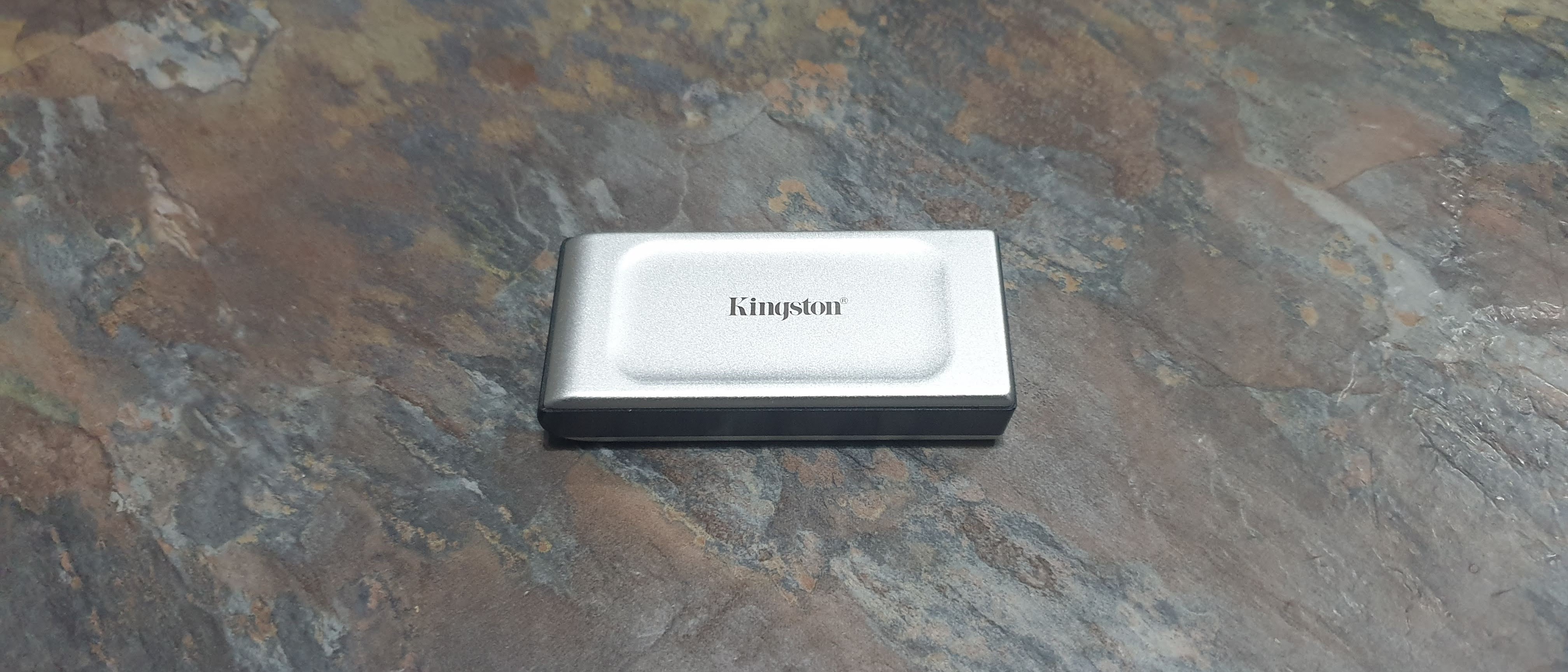TechRadar Verdict
The Kingston XS2000 portable SSD has all the hallmarks of a successful product but we’re still puzzled as to why the company chose to jump on the USB 3.2 Gen 2x2 bandwagon with USB 4.0 on the verge of going mainstream. Still you can’t go wrong with it if you already have a compatible system.
Pros
- +
Fantastic speed if you have a compatible system
- +
5-year warranty
- +
Good value for money
- +
Rugged with IP55 rating
- +
Very solidly built
Cons
- -
Requires the right hardware to maintain USP
- -
Expensive if you just want plenty of fast storage
Why you can trust TechRadar
Two minute review
The XS2000 has been billed by some as the world's fastest native USB SSD; the keyword here is native as it is a USB 3.2 Gen2x2. As confusing as it sounds, it is a 20Gbps-class external portable SSD that requires a compatible port to get the most out of it. It will be most likely backward compatible with the next big update to the venerable data technology, USB 4.0, so some might question the wisdom of launching something that comes with strings attached.
An industry insider candidly told us that he thinks “it’s a rather niche market that’s better suited for players who are already heavily invested in storage or flash technologies. It also makes more sense for desktop PCs rather than notebooks”. That might explain why Samsung and Crucial have yet to launch USB 3.2 Gen2x2 products.
Don’t get us wrong, the XS2000 like the Data Traveler Max USB Flash Drive that we reviewed recently, is a superb storage device and Kingston went for the jugular by keeping its price tag as low as it could. It is water resistant, shockproof, more compact than its rivals and comes with an industry-leading five year warranty.
Pricing and availability
The Kingston XS2000 external SSD is available in 500GB, 1TB and 2TB configurations for $100, $160 and $285 respectively at Amazon US. The Adata SE900 sells for the same price and while it does come with nice RGB lights, it is physically bigger and has a shorter warranty.
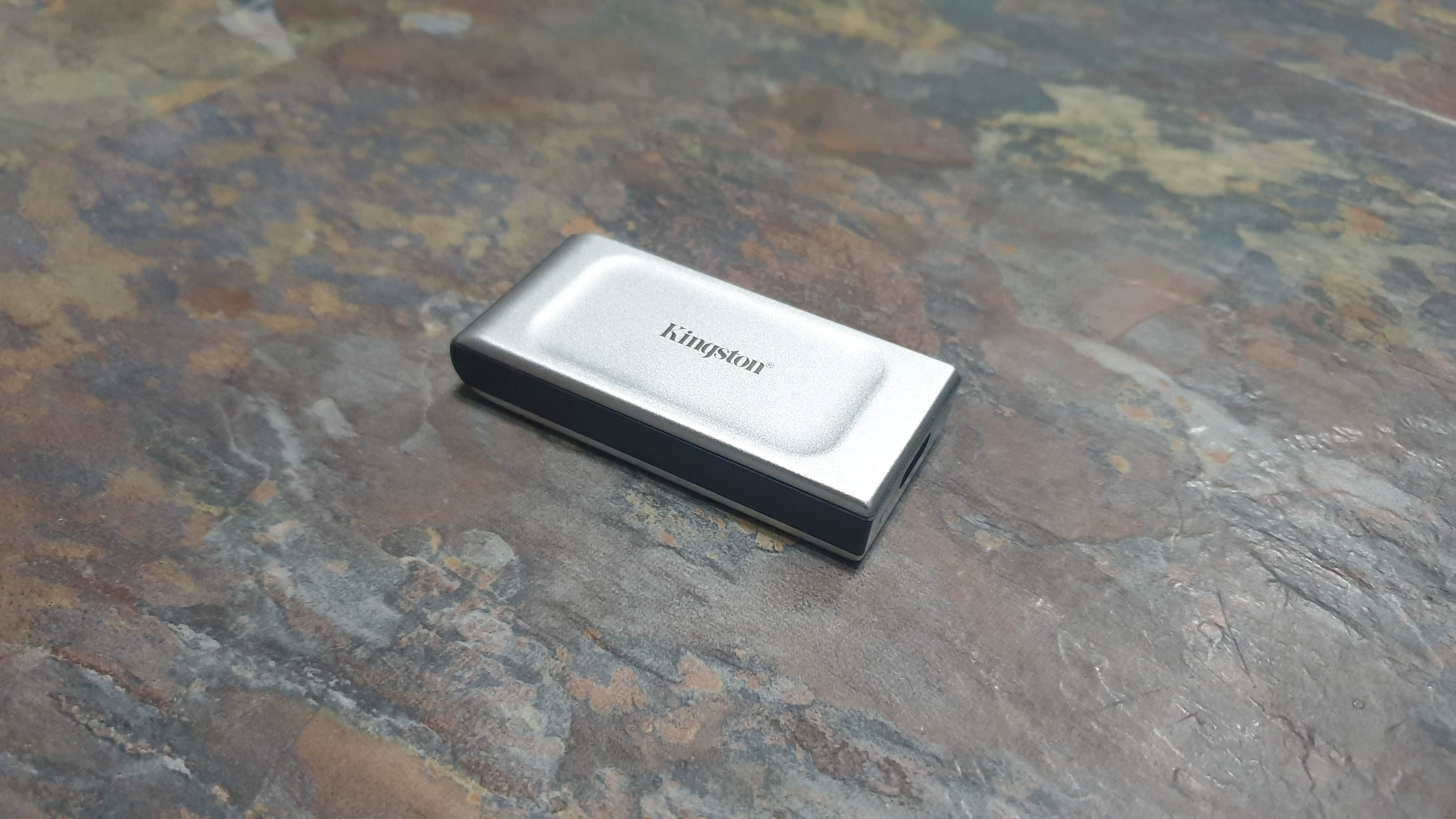
Design
Kingston says that the drive has been tested to be water resistant, dust resistant and shockproof with an included rubber sleeve. However, it doesn’t say that it has been certified an IP67-rating but a spokesperson told us that the XS2000 is “IEC/EN 60529 IP55-certified to withstand water flow and limited dust contact” and therefore, “must be clean and dry before use”.
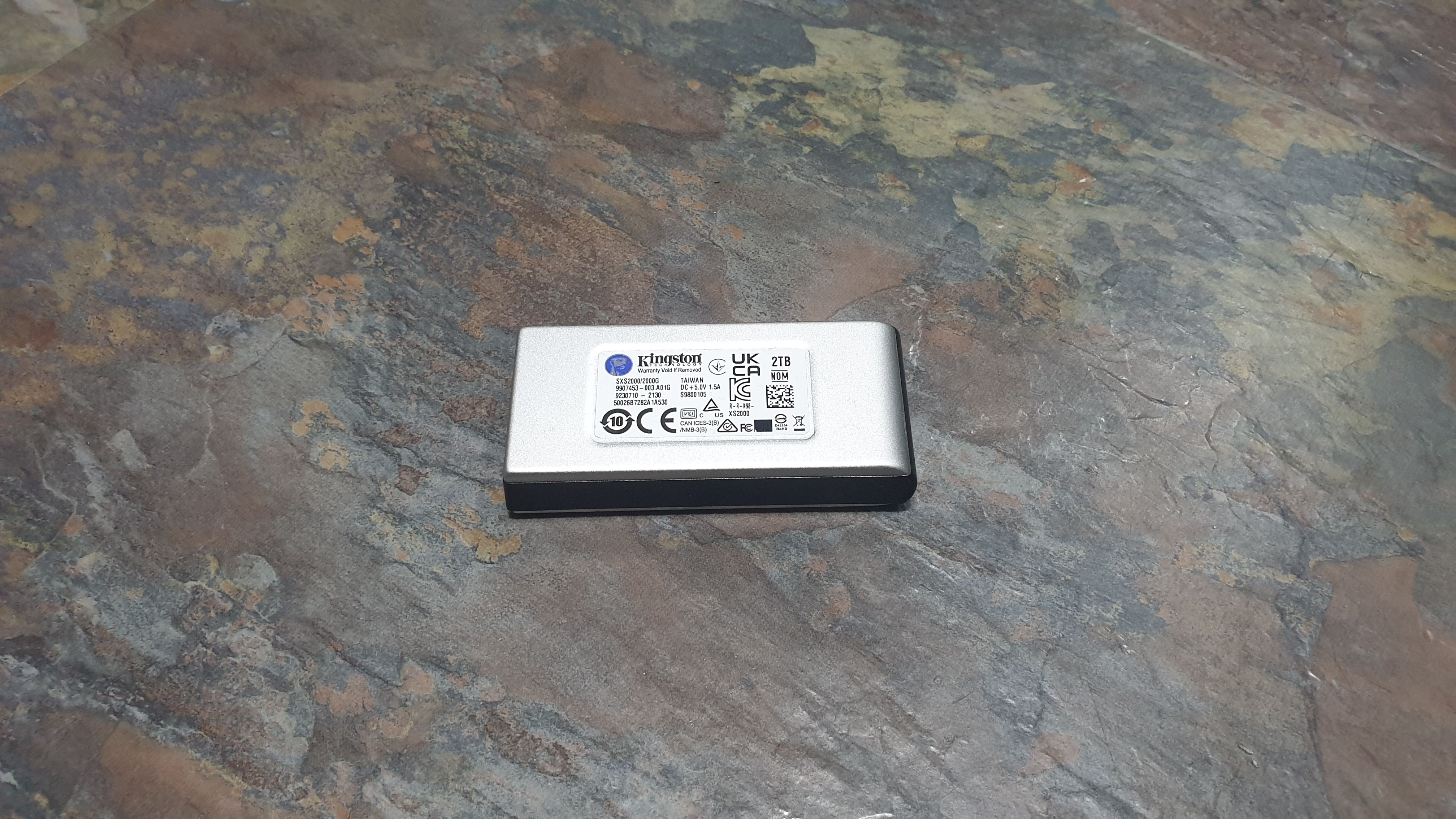
Removing the rubber sleeve exposes the bare body of the drive, its chassis being made of plastic and metal, most likely aluminum. This makes it light (29g), small (13 x 31 x 67mm without the sleeve) and just about warm when under load. Other than a status LED and the usual stickers and logos, there’s not much to mention.
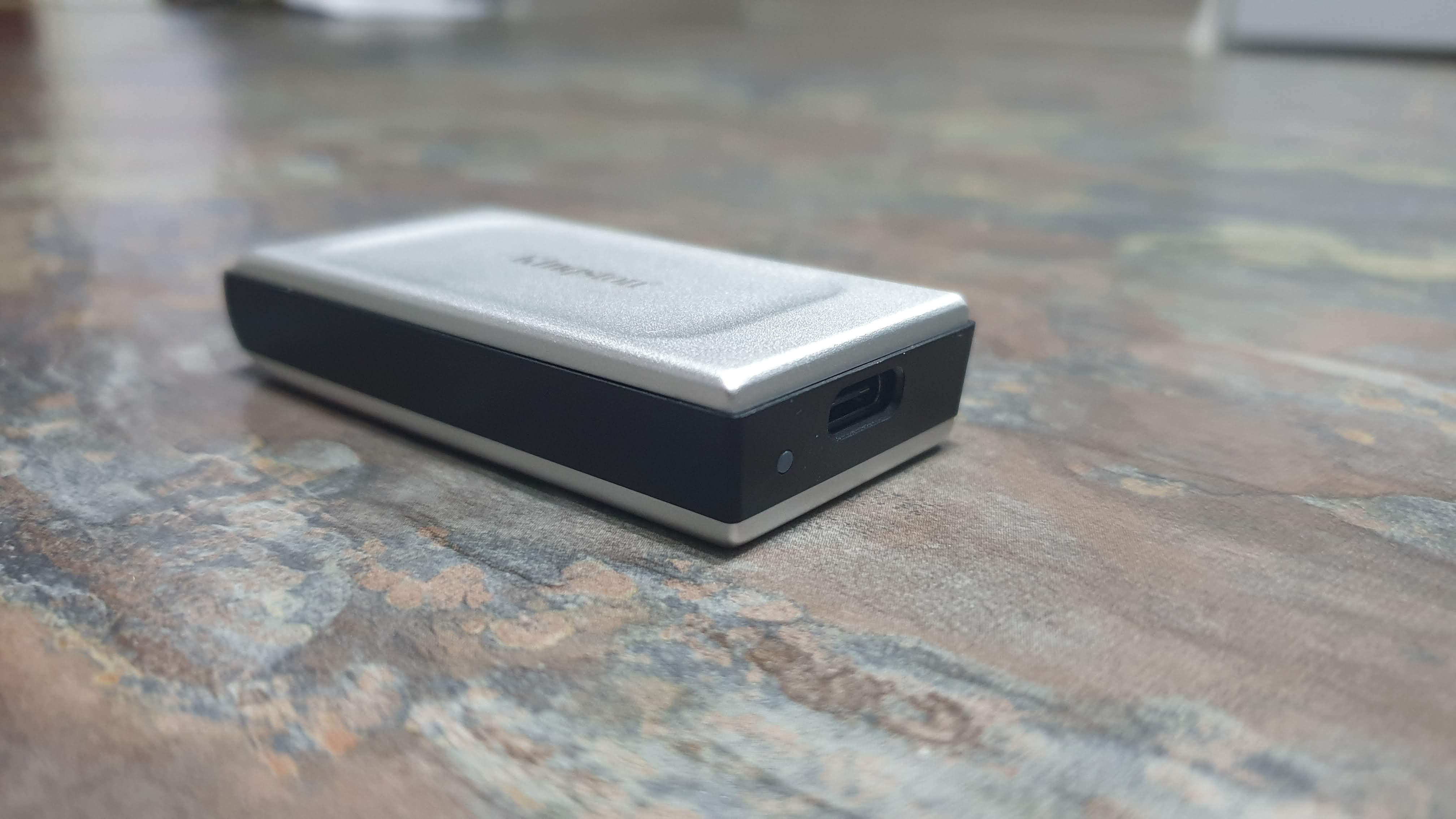
Hardware
The device uses the SM2320, a native USB 3.2 Silicon Motion controller, paired with 3D TLC NAND chips, probably Micron’s 96-layer one as found in the Kingston DataTraveler Max we reviewed recently. Other than the usual cables and the sleeve, there’s not much to shout about.
Sign up to the TechRadar Pro newsletter to get all the top news, opinion, features and guidance your business needs to succeed!
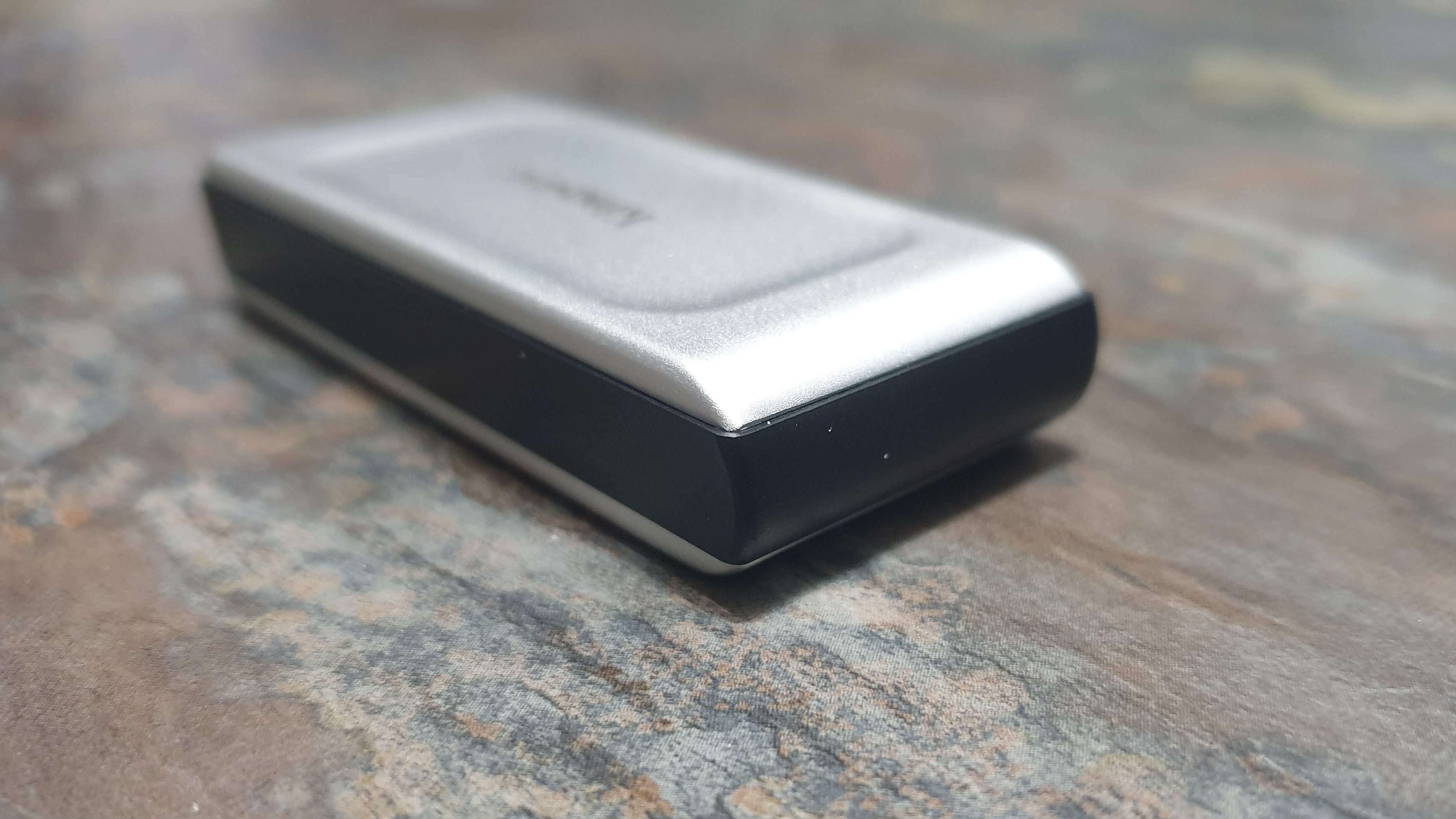
Performance and in use
We used the beautiful Bleujour Kubb Gen 11 Intel Mini PC, which we reviewed earlier this year, as the benchmark machine. It hosts a Thunderbolt 4 port which is not compatible with USB 3.2 Gen 2x2 protocol, therefore we were unable to assert Kingston claims that the device can reach up to 2000MBps read/write speeds.
As such, the XS2000 didn’t hit any high notes: tests show that it is an above average performer on USB 3.2 Gen 2. It really, really needs a compatible system to hit its headline speed of 2GBps, allowing it to rival Thunderbolt 3 SSD like.
Here’s how the Kingston XS2000 performed in our suite of benchmark tests:
CrystalDiskMark: 1062MBps (read); 999MBps (write)
Atto: 1019MBps (read, 256mb); 957MBps (write, 256mb)
AS SSD: 954MBps (seq read); 893MBps (seq write)
AJA: 951MBps (read); 909Mbps (write)
Also, we were sent a statement from Kingston as to why the technology is NOT compatible with Thunderbolt 4 or Thunderbolt 3:
“Thunderbolt and USB 3.2 Gen 2×2 are different technologies with different specs that use the same connector (Type-C). Basically, the XS2000 SSD needs to be connected to a USB 3.2 Gen 2x2 USB (Type-C) port and use the appropriate cable to reach the advertised speed. Even though Thunderbolt 3 & 4 use a Type-C connector and advertise up to 40Gbps of transfer speed, the pins layout (aka lanes) are different from the one of USB 3.2 Gen 2x2. The pins of the Type-C connector need to be allocated for data transfer to reach the 20GBps of USB 3.2 Gen 2x2. For the Thunderbolt Type-C connector, some of the pins (2 lanes) are used for video signals (or else) and not specifically dedicated to data transfer, that is why the data transfer speed is lower with Thunderbolt.”
Note that there’s no bundled software (cloud storage or cloud backup) or any data recovery services (like on most LaCie portable SSD). This is a very low-cost way of grabbing a unique selling point that might sway potential customers on more than just price.
Should I buy the Kingston XS2000 external SSD?
Buy it if:
You have a USB 3.2 Gen 2x2 compatible device with plenty going for it
If you have a compatible system, the XS2000 is a no-brainer with speeds that are within touching distance of Thunderbolt 3. Even if you don't, the fact that it comes with a long warranty, a tiny form factor, a very affordable price tag and is IP-rated makes it a very attractive purchase.
Don’t buy if:
You’re looking for the absolute cheapest price
At the time of writing, there are far cheaper 2TB USB 3.2 Gen 2 drives available on the market. The Crucial X8 remains the undisputed price champion with a price tag that’s a third less than the XS2000 at the time of writing. Another recommendation would be the VAVA Portable SSD touch which comes with a fingerprint scanner.
We've also highlighted the best portable SSD

Désiré has been musing and writing about technology during a career spanning four decades. He dabbled in website builders and web hosting when DHTML and frames were in vogue and started narrating about the impact of technology on society just before the start of the Y2K hysteria at the turn of the last millennium.
